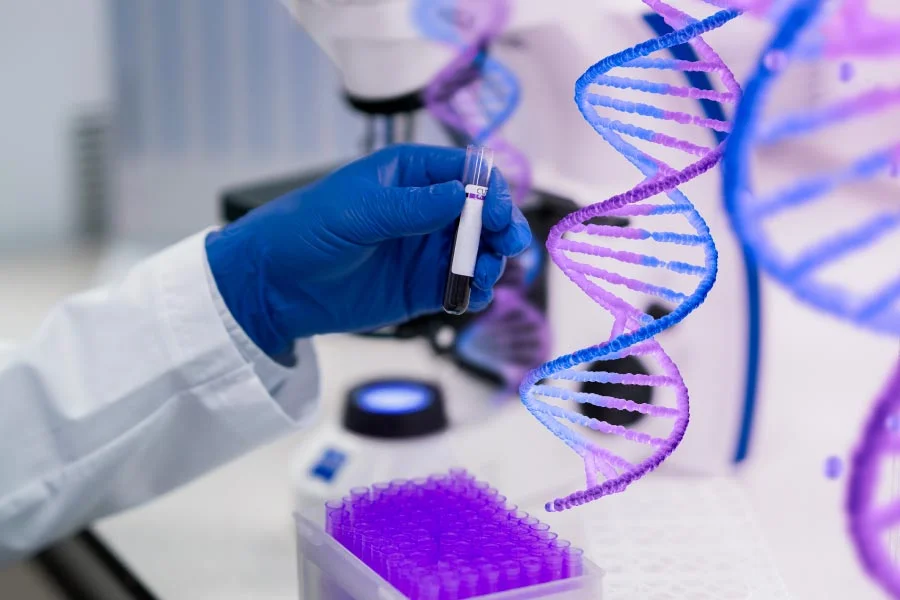
The field of clinical microbiology has been a cornerstone of modern medicine for decades, providing invaluable insights into the diagnosis and treatment of infectious diseases. However, as technology advances and our understanding of microorganisms deepens, the future of clinical microbiology is evolving rapidly. In this blog, we will explore some of the exciting developments in this field and why it's crucial to embrace these changes.
One of the most significant advancements in clinical microbiology is the advent of Next-Generation Sequencing (NGS). NGS technologies have revolutionized our ability to analyze microbial genomes with unprecedented speed and accuracy. Traditional culture-based methods can be time-consuming and may miss unculturable or fastidious pathogens. NGS, on the other hand, enables the comprehensive characterization of all microorganisms present in a clinical sample, including bacteria, viruses, fungi, and even their genetic variations.
This technology not only accelerates the identification of pathogens but also facilitates the detection of antibiotic resistance genes, enabling clinicians to tailor treatments more effectively. Embracing NGS in clinical microbiology opens the door to personalized medicine, where treatment strategies are tailored to the specific characteristics of each infection.
The integration of artificial intelligence and machine learning into clinical microbiology is another game-changer. These technologies can analyze vast datasets from various sources, including NGS results, patient records, and epidemiological information. By processing this wealth of data, AI can assist clinicians in making faster and more accurate diagnoses and treatment decisions.
AI algorithms can recognize subtle patterns in microbial genomes and predict antimicrobial resistance, helping clinicians select the most effective drugs. Moreover, machine learning models can identify outbreaks and track the spread of infectious diseases in real-time, aiding public health efforts to control epidemics.
Traditionally, clinical microbiology tests were performed in centralized laboratories, leading to delays in obtaining results. However, the future of clinical microbiology is shifting towards point-of-care diagnostics (POC). POC tests are rapid, portable, and can be performed at or near the patient's location. This not only expedites diagnosis but also reduces the risk of disease transmission in healthcare settings.
For example, handheld devices that can detect specific pathogens or antibiotic resistance markers within minutes are becoming more common. These devices empower healthcare professionals to make immediate decisions regarding patient care, especially in critical situations where time is of the essence.
Our understanding of the human microbiome—the vast community of microorganisms living in and on our bodies—has grown tremendously in recent years. This holistic approach to clinical microbiology is transforming how we view health and disease. Rather than solely focusing on individual pathogens, researchers and clinicians are exploring the complex interactions between the microbiome and human health.
Embracing microbiome research can lead to innovative diagnostic and therapeutic strategies. For instance, microbiome analysis can help identify microbial signatures associated with various diseases, paving the way for targeted interventions, such as probiotics or microbiome-modulating therapies.
In the future of clinical microbiology, collaboration will be more critical than ever. Infectious diseases do not respect borders, and emerging pathogens can quickly spread across the globe. To effectively combat these challenges, clinicians, researchers, and public health officials must collaborate on a global scale.
Sharing knowledge, data, and resources can lead to more robust surveillance systems, better understanding of emerging threats, and the development of universally effective diagnostics and treatments. Embracing international collaboration ensures that the global community is better prepared to face the ever-evolving landscape of infectious diseases.
In conclusion, the future of clinical microbiology is a promising one, filled with exciting advancements that have the potential to transform healthcare. Embracing technologies like NGS and AI, adopting POC diagnostics, exploring the microbiome, and fostering global collaboration will enable us to stay ahead of infectious diseases and provide more personalized, efficient, and effective care to patients. As we continue to embrace these innovations, we move closer to a future where infectious diseases are better understood, rapidly diagnosed, and successfully treated, ultimately improving the health and well-being of people worldwide.